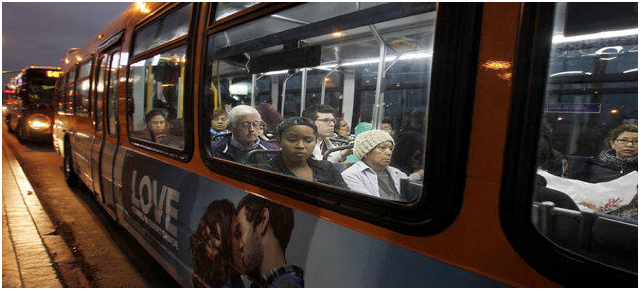THE WAY WE ARE-We Angelenos may not see in our lifetimes a harder slap upside our civic heads than the searing report just released by the Kantor Commission’s Los Angeles 2020 report, “A Time for Truth.”
No one escaped some measure of responsibility for how the city has fallen into decline and the dire news that we’re on the verge of death by a thousand cuts unless we take drastic action.
But the report features a glaring omission even as it represents a bill of indictment on a generation of this city’s leadership – political, civic, business, even community leadership at the neighborhood level.
What’s missing is the ground-level perspective of ordinary people. Where in “A Time for Truth” is the reality of those not ensconced in business suites and City Hall, but who talk to one another over the back fence, at the market, in the park or at barbecues and the beach? How does the report’s putative “truth” express any of the concerns dear to those who have invested a life in Los Angeles, buying homes, building families, finding work, crafting careers, and thinking, sometimes with alarm, about the conditions that surround them?
What young person, or couple looking to lay down roots, or business entrepreneur, college graduate, or promising public servant would read such a report and possibly want to place their future stakes in a city slow-walking itself toward becoming the next Detroit, but with better weather?
Now, more than ever, it’s the people who care deeply about their small piece of Los Angeles who need to step up and own this city’s fate. The report doesn’t call on them, but that doesn’t mean they shouldn’t answer.
I propose that ordinary folk start carrying around a “civic yardstick” by which to measure the business, civic and political leaders who have led them along the commission’s well-documented road to our present borderline ruin. By this new yardstick, leaders would be held to account for progress against six key human measures, including how healthy, secure, connected, capable, competent and prosperous is each human being living in Los Angeles.
These could be measured at each election, in corporate annual reports, via the census, in periodic “indicators” studies, and in objective annual citizen surveys conducted by our most prestigious academic institutions.
These six indicators matter for a very simple set of reasons:
● Physically and emotionally healthy people feel good and exude energy.
● Secure people feel safe on the streets and in neighborhoods.
● Connected people form deep mutual bonds of relationship and reciprocity.
● Capable people experience a sense of agency and personal control.
● Competent people feel sturdy and determined in the ventures they pursue.
● Prosperous people choose their destiny and believe the future is theirs.
Why do these measures matter? Because only a healthy, secure, connected, capable, competent and prosperous citizenry can supply the energy, sense of caring and civic will necessary to hold leaders accountable for transforming their city.
The LA2020 report’s condemnation of policy blunders, business lethargy, government incompetence and failing schools implies, at base, that somewhere we have lost touch with a basic concern for one another in Los Angeles. And the collective ho-hum response from both the media and the sitting generation of leadership puts that fact in stark relief.
Our political leaders have failed in pursuing a civic agenda focused on the greater good, choosing at best a self-preserving course of passivity, caution and the kinds of short-term deals that mortgage our fiscal future.
Our business leaders have muffed the connection between building terrific places to work that make people feel committed to the places where they live.
Our social sector leaders have muddled through with Band-Aid solutions, all the while tolerating rising rates of urban misery without organizing the agonized masses and taking to the streets in protest and rage. We’ve even missed the mark on our philanthropic potential.
The report spares no one and shames us all. Worse, it says we’ve become addicted to the status quo and find ourselves powerless to change. Like addicts, the report suggests, we’ve hit bottom.
The only way to lift our city from the gutter lies in taking an honest, searching look at the condition of each person individually and of our collective civic soul. When we do, we’ll likely conclude that Los Angeles is firmly in the grip of a hardwired "me first" culture, a pernicious place most people in the throes of denial fight like hell to defend.
(Paul Vandeventer is the President & CEO Community Partners. This article was posted first at communitypartners.org)
-cw
CityWatch
Vol 12 Issue 9
Pub: Jan 31, 2014





